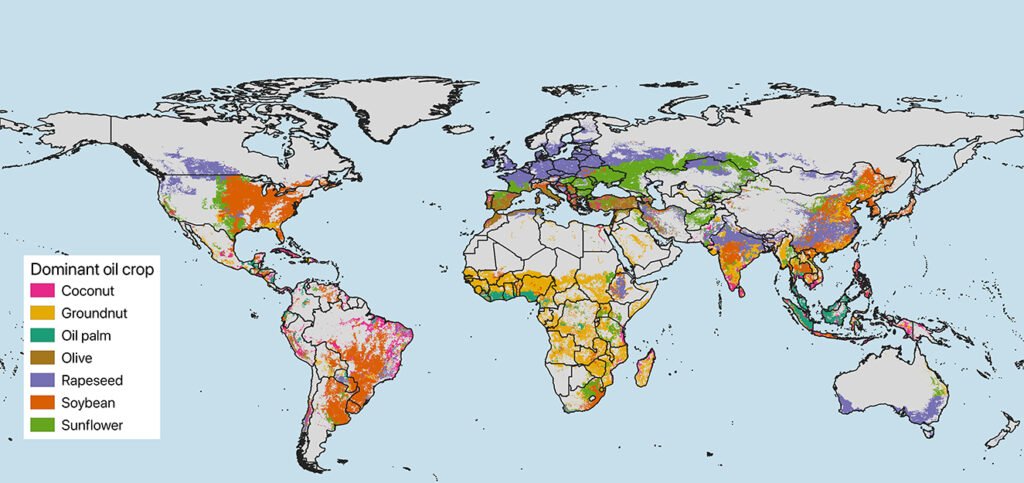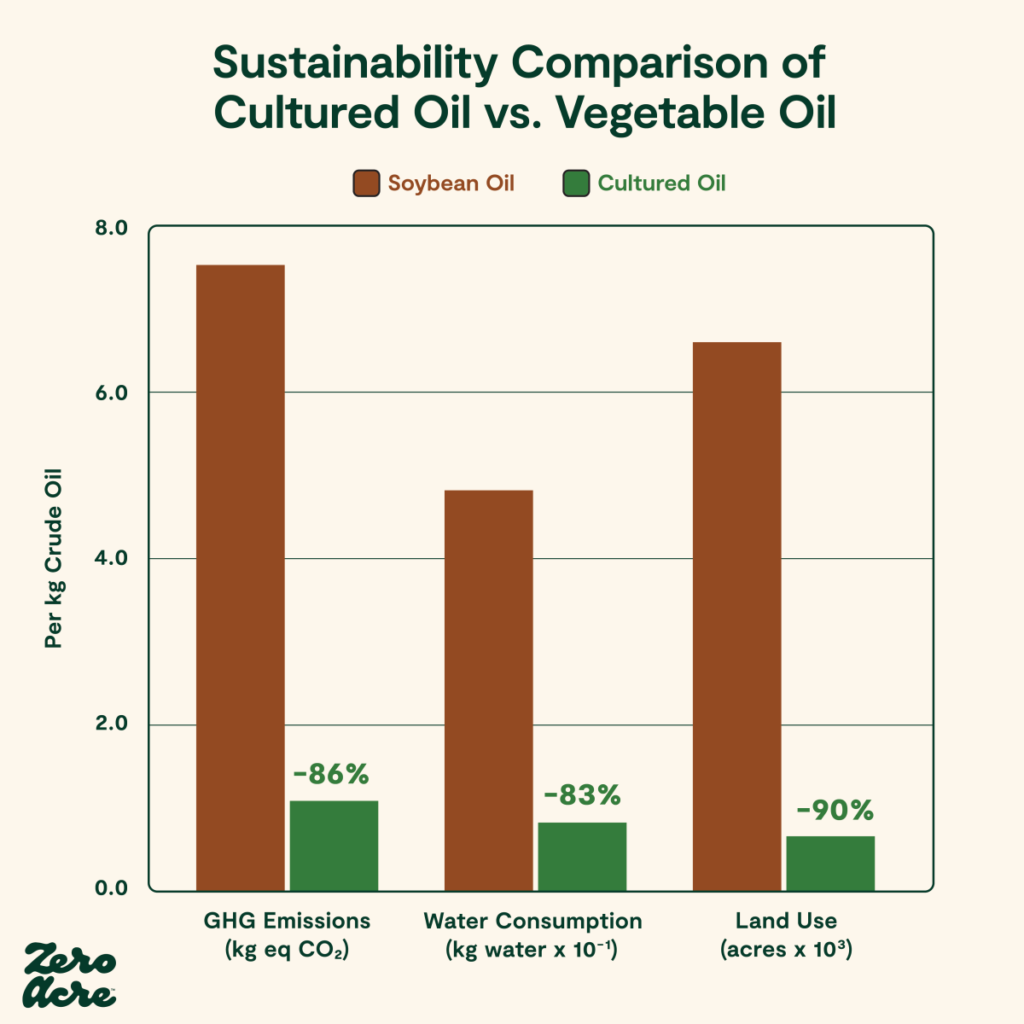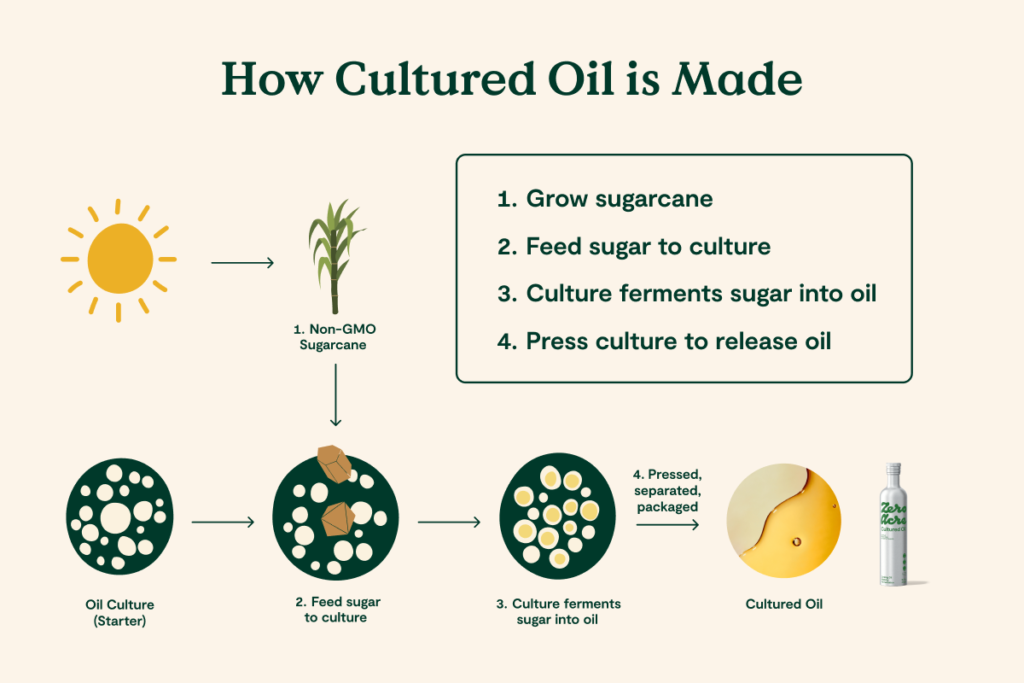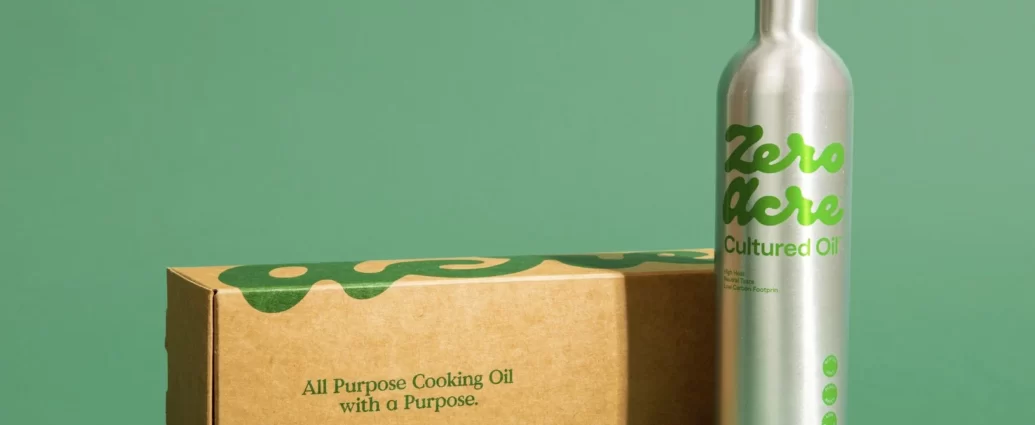There is a high demand for various vegetable oils, such as soybean, palm, safflower, sunflower, peanut, avocado, coconut, canola, and olive. These oils are produced from plants that now occupy almost 25% of the world’s cropland. Additionally, the demand for these oils continues to increase.

This is concerning for the environment. Companies are clearing carbon-rich forests to make way for oil crops like palm and soybeans, which is harmful to climate goals and biodiversity.
What if there was a cooking oil that didn’t contribute to deforestation?
Zero Acre Farms, a California startup, has developed a product called Cultured Oil, which is made through the fermentation of sugarcane. The company says its oil requires 90 percent less land and accounts for 86 percent fewer greenhouse gas emissions than soybean oil.

Shake Shack recently announces that they will be testing this new cooking “Cultured Oil” on their fries at two of their locations in New York City, which has generated interest in the startup. Zero Acre has raised millions of dollars from venture capital funds linked to Chipotle Mexican Grill, Richard Branson’s Virgin Group, and the actor Robert Downey Jr.

Cultured Oil is a type of oil that is produced by microorganisms. When sugarcane is added to a container filled with algae, the microorganisms convert the sugar into oil. The end product, as stated by Zero Acre, is a healthier liquid compared to other oils because it has low levels of saturated and polyunsaturated fats. These fats are often associated with causing chronic inflammation and heart disease.
The production of vegetable oil contributes significantly to greenhouse gas emissions and the increased demand for oil crops has led to habitat destruction and loss of biodiversity. However, it is still uncertain how much more environmentally friendly Cultured Oil will be.
Reference- National Library Of Medicine, National Geographic, BBC, The Guardian, Vox, Zero Acre Oil Newsroom






